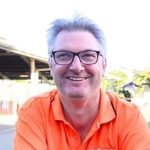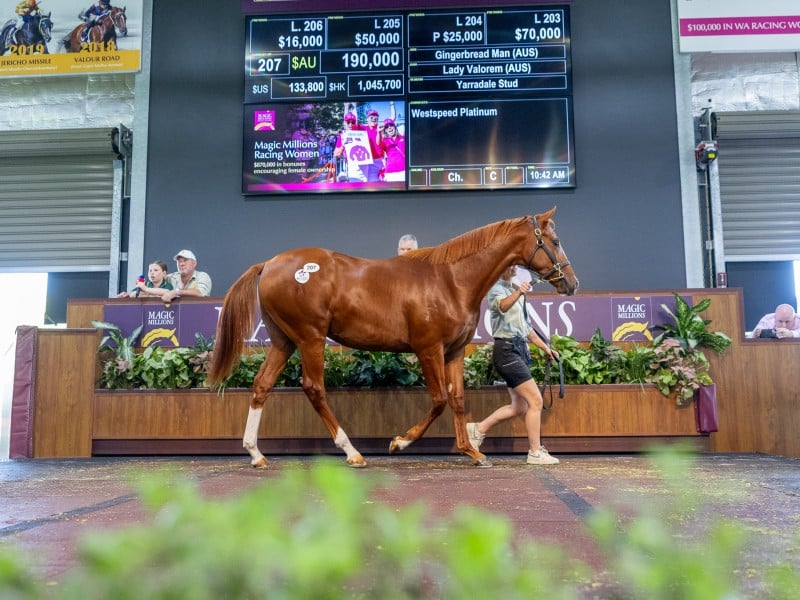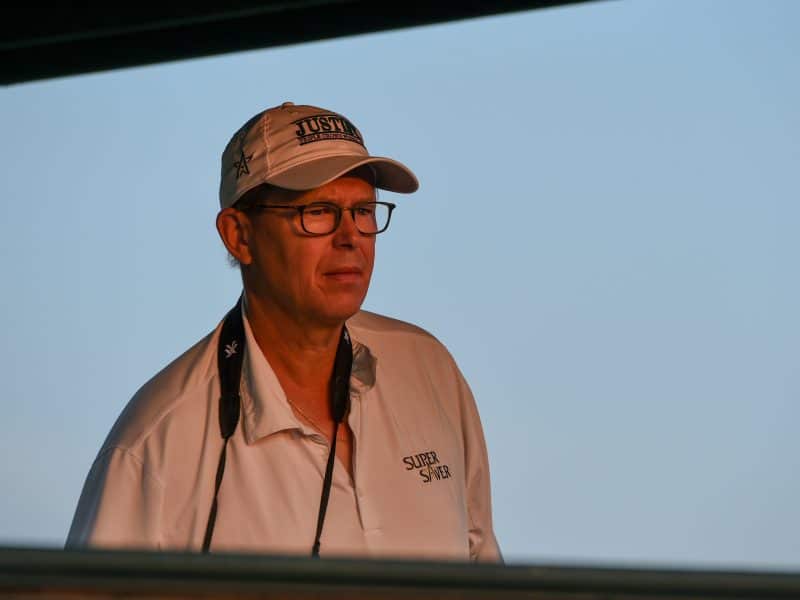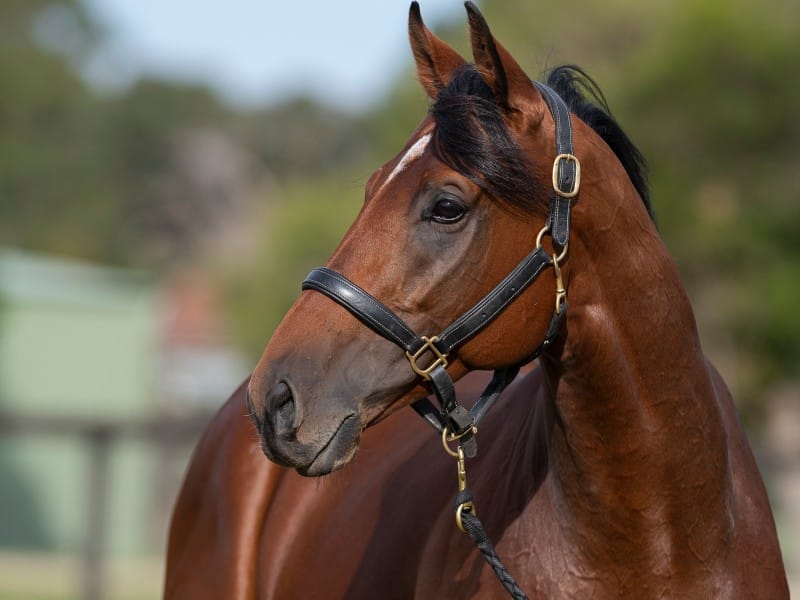Randwick one day, Kentucky the next – Widdup takes flight to Keeneland with Mulberry’s backing
For a Sydney trainer just days into spring and horses in crucial parts of their campaigns, ones which could lead to all-important Group 1s, Brad Widdup’s attention is being pulled in different directions.
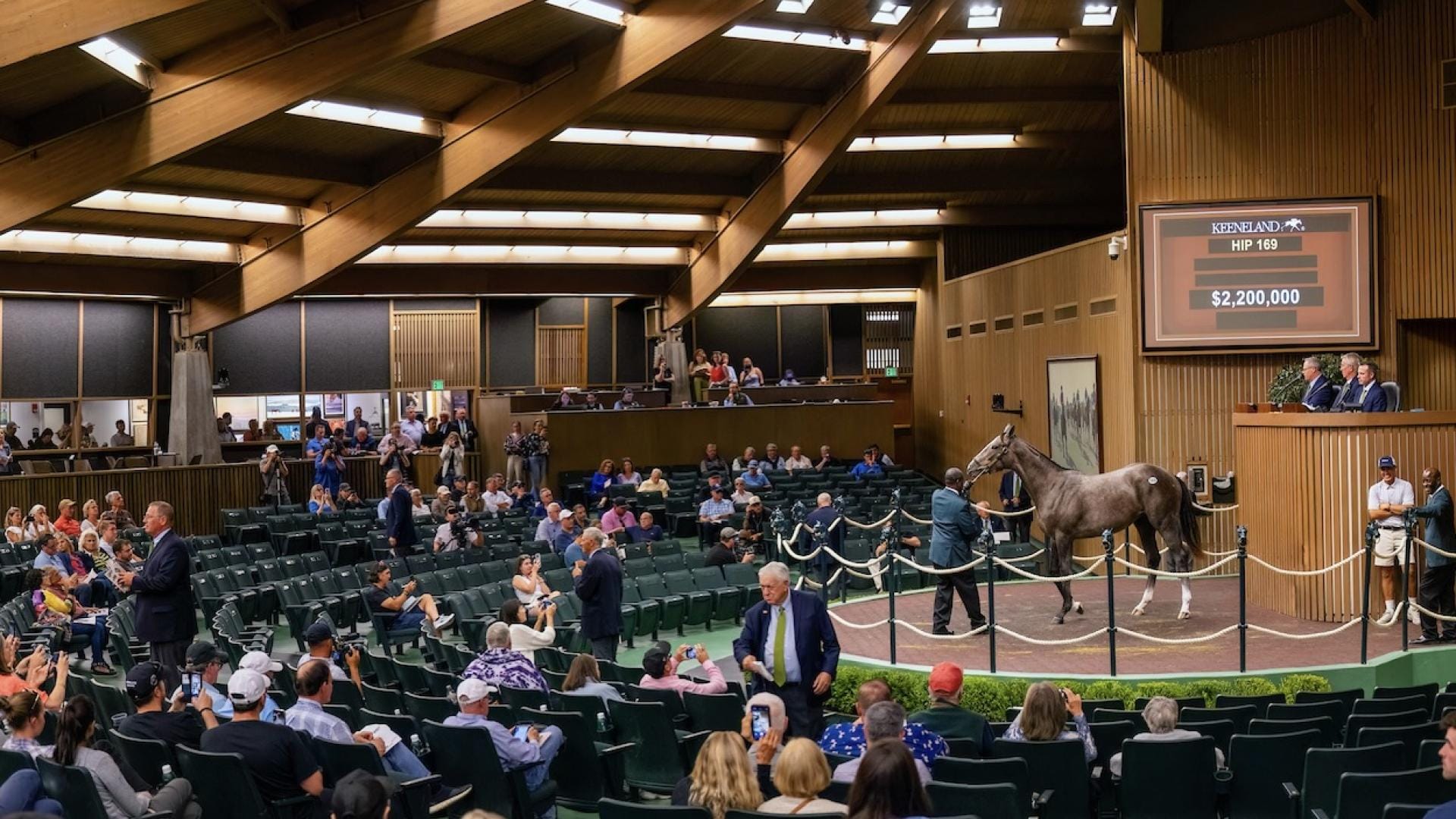
And not just whether six-year-old sprinter Jedibeel headed to Melbourne for the Group 1 Moir Stakes or stayed in NSW to run in the Concorde Stakes or whether Savvy Hallie can make it three in a row in the Furious Stakes and potentially on her way to the Flight Stakes.
Jedibeel, owned by businessman Mike Gregg’s Mulberry Racing, will remain in Sydney and a strong performance at Randwick could put him in the picture for The Everest.
Mulberry Racing, which is managed by Gregg’s grandson Lachlan Sheridan, won the tender process to take on a slot in The Everest after The Star relinquished its involvement in the race due to ongoing financial issues.
Jedibeel, arguably unlucky in three Group 1s during the autumn in Sydney and Brisbane, could be Mulberry’s horse for The Everest. But it’s no guarantee.
“I’ve been pretty straight up about it, it’s not about Brad Widdup Racing; they want to put the best horse they can (into the race), but the Briasas have gone, the Private Harrys are gone,” Widdup tells The Straight.

“A couple of the others are flying in the stables … so it makes it hard once the first few picks are gone.”
Randwick on Saturday is one thing, but Widdup will be on a plane on Sunday heading to the United States for the Keeneland September Yearling Sale in Lexington, Kentucky.
As well as Mulberry’s Australian-based trainer, Widdup has also become a trusted advisor to Gregg in helping manage his thoroughbred racing portfolio, which extends to America.
For now, it’s not about importing those horses to Australia, either.
“Mike would like to, but we want to give the trainer in America (Brendan Walsh) every chance with them before we do that,” Widdup says.
“He’ll give them every chance to race at two and three, preferably three and see what happens after that.”
Keeneland can be a daunting task for buyers, not least those coming from the other side of the world and landing on day one of the September sale.
There are 4537 yearlings catalogued, making it the biggest sale of its type in the world, with an average of 378 lots to go through the ring a day across 12 sessions over a 13-day period.
Such a schedule makes it impossible to inspect every horse and short lists, however they are devised, are a necessity.
Widdup and Mulberry Racing, who bought six horses at last year’s Keeneland sale, are relying on Walsh and global industry all-rounder Suzi Prichard-Jones for their input.
“We give a list to Brendan Walsh and Suzi Pritchard-Jones, who’s a respected horsewoman over there, she’s Irish but she lives in Florida and she has a look as well,” the trainer said.
Australian representation at Keeneland might be small in numbers, the antipodean buying bench will include Gold Coast-based agent Craig Rounsefell, a regular on the US sales circuit.
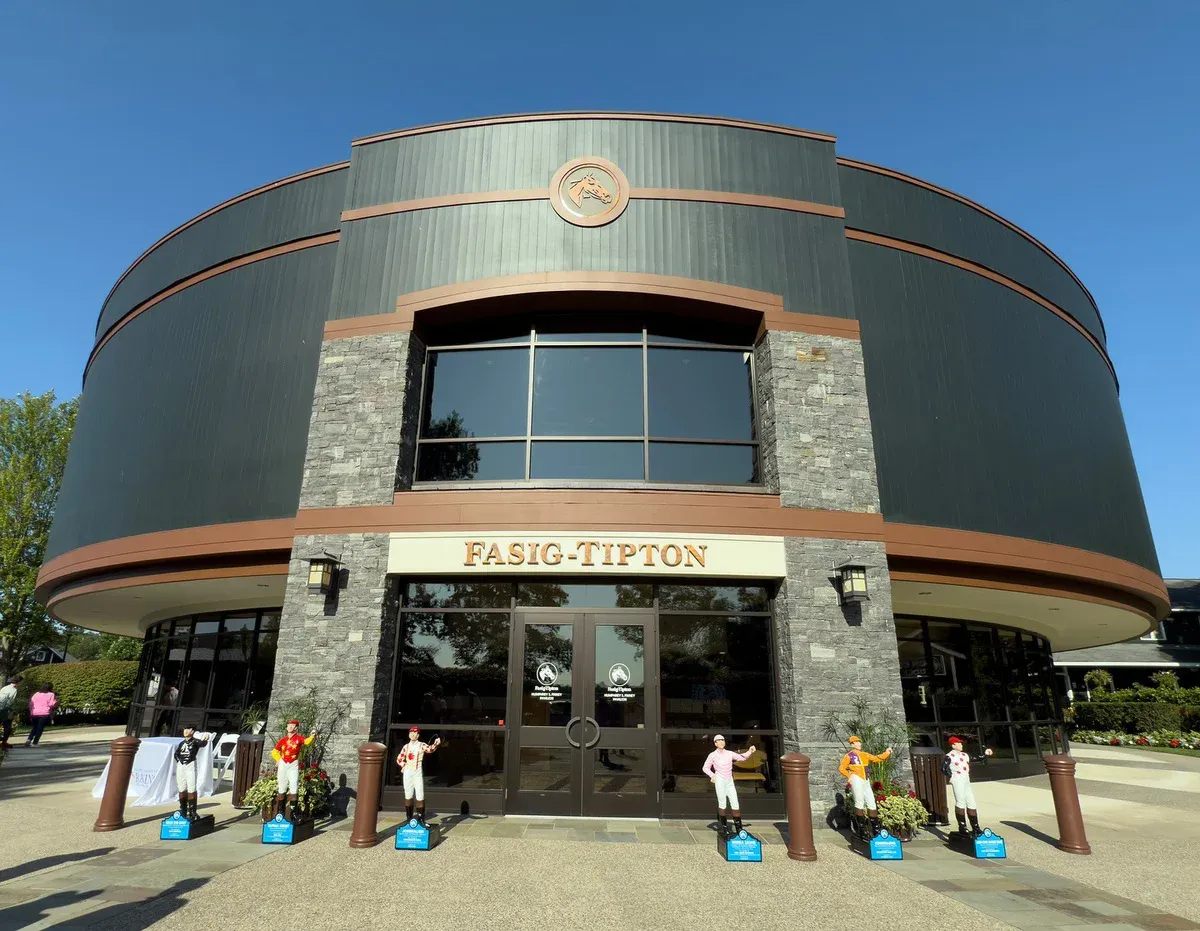
He flew out to the US on Thursday ahead of a big two-and-a-half weeks in Kentucky.
“It’s probably the hardest work you’ll do at a sale for the year in terms of starting inspecting at 7.30 in the morning and going till they shut up at 5pm,” Rounsefell said.
“At a sale, you’re looking at horses that, after you get through the first couple of books (1 and 2), you’re looking at horses that’ll sell the next day. So, it moves at a rapid pace.”
Rounsefell’s already been to the US and back, attending last month’s booming Fasig-Tipton Saratoga Sale in upstate New York.
He’ll be inspecting yearlings for long-time client, US trainer Dan Blacker, as well as clients from Canada and the Hong Kong Jockey Club.
The potential addition of the Jockey Club adds an interesting dimension given the US industry’s focus on dirt horses.
“The last few years we’ve been looking (for the Jockey Club), but like you see in Australia and even in Europe, there’s a lot of hoops to jump through in terms of pedigrees having to match the physicals, they’re very strict on that and then obviously getting through their strict vetting criteria,” Rounsefell said.
“In the US, there’s probably a smaller pool of horses that you’re starting with compared to say Australia or Europe because of the dirt factor. It’s just about doing the work and if that horse is there that fits the program and it’s in budget, then we’re set and ready to do something.”
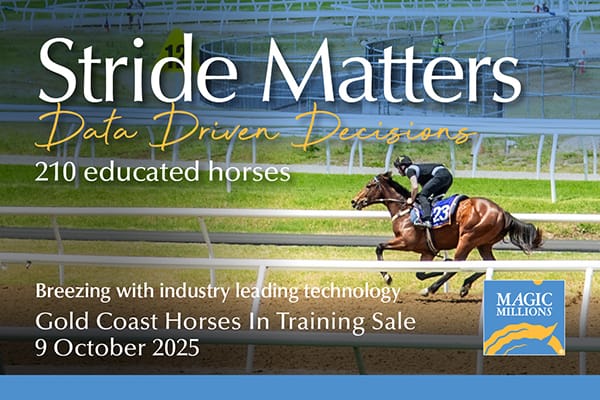
The 100 per cent immediate tax write-off on American bloodstock, which has been legislated permanently under US President Donald Trump’s One Big Beautiful Bill, proved an irresistible incentive for wealthy buyers at Saratoga, and Rounsefell expects similar market sentiment at Keeneland.
“It’s also been documented with that Netflix series (Race For The Crown) that it’s brought to light the positive aspects of the industry and probably brought in a few new people whose eyes are on the industry and there has been some really positive things happening in terms of medication and horse welfare and things like that,” he said.
“I think racing’s becoming more and more popular again in the US in certain pockets and I think … you’ll see it in Keeneland.
“It is definitely the best barometer with that volume of horses. When you line it up year-on-year, it’s the same sort of numbers and when you compare them year on year, you’re getting a true figure.”
The Keeneland September Sale starts with the Book 1 session on Monday.


